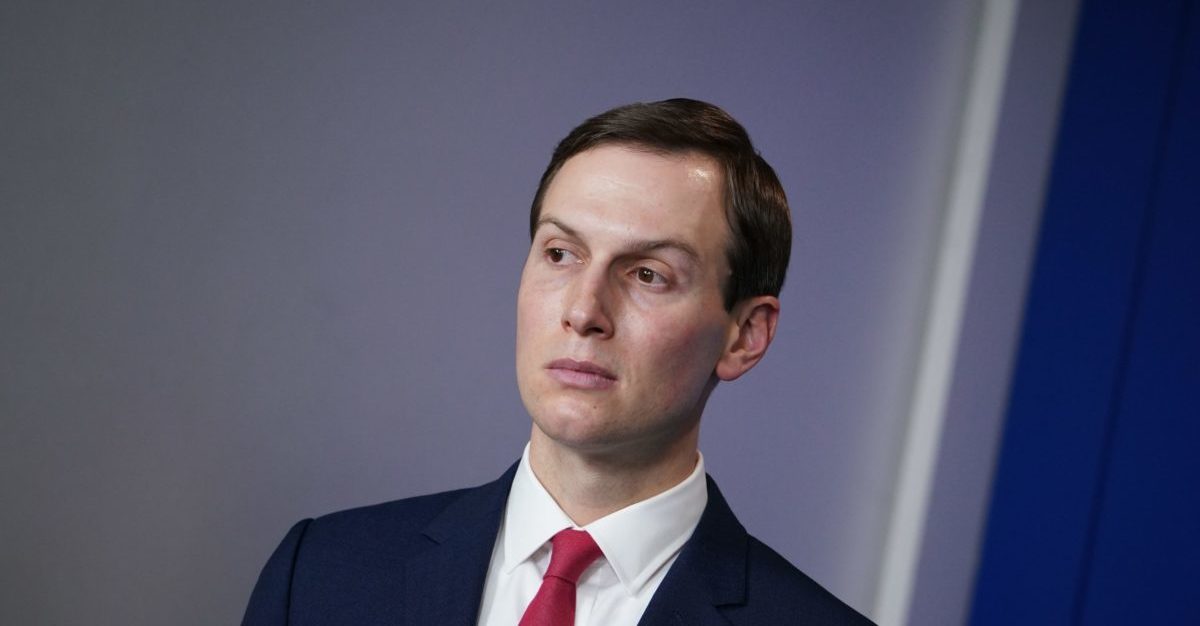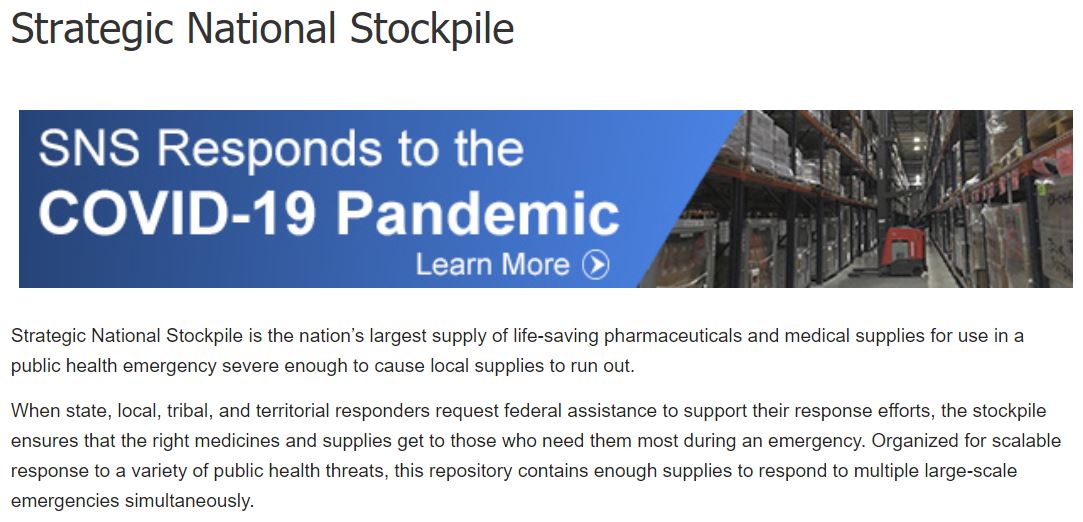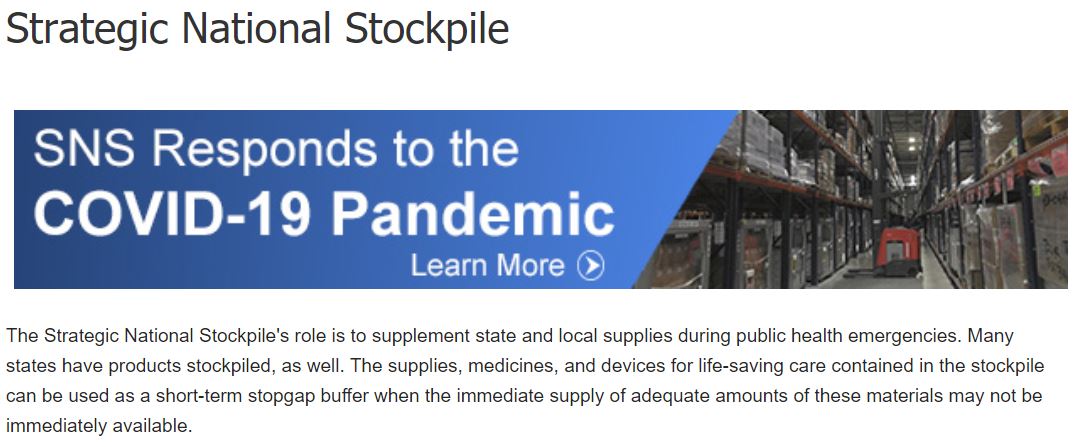
The United States Department of Health and Human Services (HHS) on Friday changed its website in a way that reflects the views of the Trump Administration and son-in-law Jared Kushner when it comes to the legally-mandatory “Strategic National Stockpile” of emergency medical supplies. Kushner on Thursday night suggested that the stash of gear is the federal government’s and insinuated that states shouldn’t be attempting to dictate where the supplies are sent. Law&Crime debunked that line of reasoning by examining the law itself.
Kushner’s comments echo those of President Donald Trump himself, who, contrary to law, has said states should take the lead in procuring medical supplies for their people. We have analyzed the relevant law several times since the pandemic began.
While researching Kushner’s statements, Law&Crime examined this HHS website which explains, in simple terms, what the stockpile is for. As of Friday morning, it said:
Strategic National Stockpile is the nation’s largest supply of life-saving pharmaceuticals and medical supplies for use in a public health emergency severe enough to cause local supplies to run out.
When state, local, tribal, and territorial responders request federal assistance to support their response efforts, the stockpile ensures that the right medicines and supplies get to those who need them most during an emergency. Organized for scalable response to a variety of public health threats, this repository contains enough supplies to respond to multiple large-scale emergencies simultaneously.
See the screenshot below.

Shortly before 11:40 a.m., however, the site changed to read as follows:
The Strategic National Stockpile’s role is to supplement state and local supplies during public health emergencies. Many states have products stockpiled, as well. The supplies, medicines, and devices for life-saving care contained in the stockpile can be used as a short-term stopgap buffer when the immediate supply of adequate amounts of these materials may not be immediately available.

The differences in the language are stark and important. The old language said the stockpile “ensures … medicines and supplies get to those who need them” if “local supplies … run out.” The new langauge says the stockpile is meant merely “to supplement” local supplies and echoes language by Kushner and the Trump Administration that states should take the lead. The new phrases “short-term,” “stopgap,” and “buffer” appear nowhere in the relevant section of the United States Code. The original language more accuately reflects the system of federalism contemplated in the law itself. That’s where local, state, and federal governments work together to ensure supplies are available for all Americans. The following often-quoted section of the United States Code explains precisely, in legal terms, what the strategic stockpile is intended to do. The law requires the Secretary of Health and Human Services to:
“[M]aintain a stockpile or stockpiles of drugs, vaccines and other biological products, medical devices, and other supplies in such numbers, types, and amounts as are determined … to be appropriate and practicable, taking into account other available sources, to provide for and optimize the emergency health security of the United States, including the emergency health security of children and other vulnerable populations, in the event of a bioterrorist attack or other public health emergency.”
That’s what the law says.
However, after President Trump declared the novel coronavirus pandemic a national emergency earlier this month, he instructed state governors to order their own ventilators, respirators and supplies, saying the federal government is “not a shipping clerk.”
“The federal government is not supposed to be out there buying vast amounts of items and then shipping,” Trump said on March 19. “You know, we’re not a shipping clerk … as with testing, the governors … are supposed to be doing it … and we’ll help out wherever we can.”
Kushner earlier this month formed his own task force to assist the administration’s response to the COVID-19 pandemic. The so-called Kushner “shadow taskforce” is comprised of government officials and private sector advisors and is primarily focused on expanding access to coronavirus testing. Yet Trump called Kushner to the podium during Thursday’s White House COVID-19 briefing to address whether supplies were going to those states which requested them.
Speaking from the White House on Thursday night, Kushner said “the notion of the federal stockpile was that it’s supposed to be our stockpile; it’s not supposed to be state stockpiles that they then use. So, we’re encouraging the states to make sure that they’re assessing the needs, they’re getting the data from their local — uh — situations, and then trying to fill it with the supplies that we’ve given them.”
That is the thrust and spirit of the new language on the HHS website. As we have pointed out, it is not the thrust and spirit of the law.
Law&Crime reached out to the Department of Health and Human Services for an explanation on the change.
HHS said that the new language on the web page in question is the same language the agency has been using for weeks when responding to press inquiries. HHS further said that that the Office of the Assistant Secretary for Preparedness and Response started updating the website a week ago—in order, it said, to explain to states, local agencies and the American people the role of the Strategic National Stockpile. HHS also pointed to another place on the website that has had the updated language, it said, for a while.
The part of the response that noted the website was being updated as of a week ago seems to suggest that the change occurring the morning after Kushner spoke was a coincidence. But the response did not address why the updated language on the website puts the onus on the states when the law says it is the federal government’s job to “provide for and optimize the emergency health security of the United States, including the emergency health security of children and other vulnerable populations, in the event of a bioterrorist attack or other public health emergency.”
What’s awkward, for sure, is that changing a website does not change the law itself.
Editor’s note: the story now includes a response from HHS.
[Image via MANDEL NGAN/AFP via Getty Images]